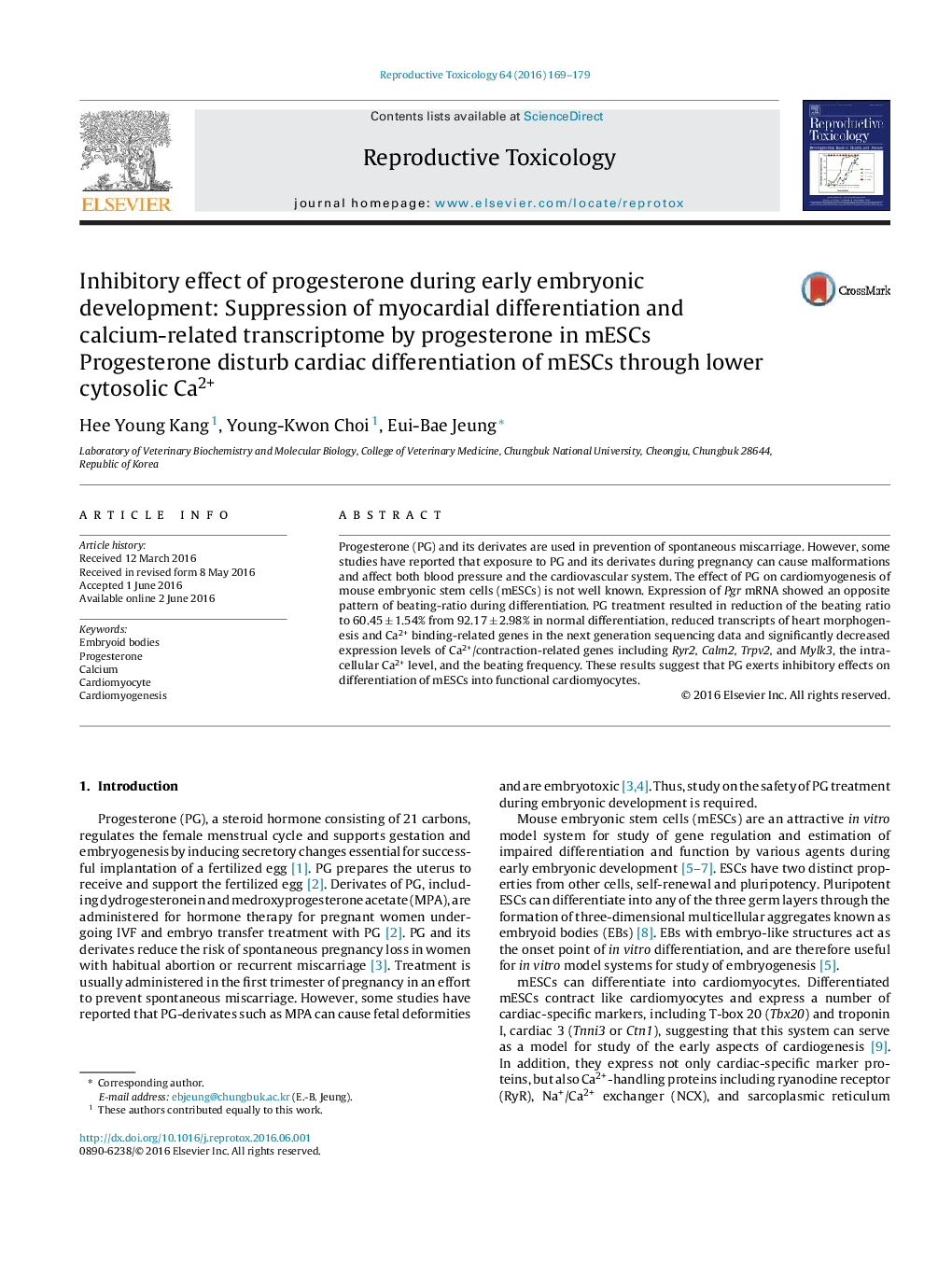| Article ID | Journal | Published Year | Pages | File Type |
|---|---|---|---|---|
| 2593307 | Reproductive Toxicology | 2016 | 11 Pages |
•Expression pattern of Pgr mRNA showed opposite pattern to the beating ratio.•We induced differentiation of mESCs into functional beating cardiomyocyte.•Progesterone decreased transcriptome related to heart development and Ca2+ binding.•Progesterone reduced the expression of Ca2+ channel and contraction relating genes.•Progesterone resulted in low beating frequency with reduced cytosolic Ca2+ level.
Progesterone (PG) and its derivates are used in prevention of spontaneous miscarriage. However, some studies have reported that exposure to PG and its derivates during pregnancy can cause malformations and affect both blood pressure and the cardiovascular system. The effect of PG on cardiomyogenesis of mouse embryonic stem cells (mESCs) is not well known. Expression of Pgr mRNA showed an opposite pattern of beating-ratio during differentiation. PG treatment resulted in reduction of the beating ratio to 60.45 ± 1.54% from 92.17 ± 2.98% in normal differentiation, reduced transcripts of heart morphogenesis and Ca2+ binding-related genes in the next generation sequencing data and significantly decreased expression levels of Ca2+/contraction-related genes including Ryr2, Calm2, Trpv2, and Mylk3, the intracellular Ca2+ level, and the beating frequency. These results suggest that PG exerts inhibitory effects on differentiation of mESCs into functional cardiomyocytes.
Graphical abstractFigure optionsDownload full-size imageDownload as PowerPoint slide
